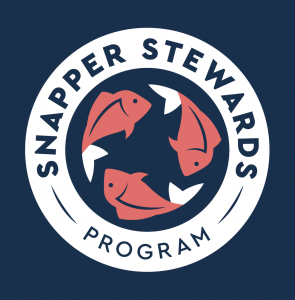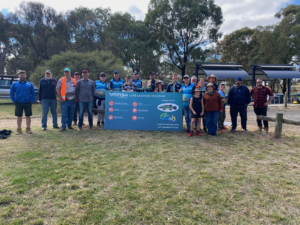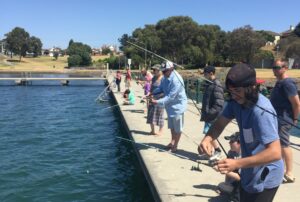November 2, 2020
Fishers have been counting the days, not only until they can wet a line, but to the day they can reel in a big snapper. The annual snapper run in Port Phillip Bay and Westernport will provide fishers with a sense of normalcy during these strange times.
For those who are planning to reel in a snapper, it’s a great time to brush up on your handling and release techniques and responsibilities as a recfisher through our Snapper Stewards program.
Our snapper fishery is world-class and there are many thing we can do as recfishers to keep it that way including helping released snapper survive.
When a feeding school has been located, multiple hookups are common and for some fishers, this has led to catching their bag limit of 3 snapper per person over 40cm very quickly.
If a full day of fishing has been planned, many fishers are reluctant to leave if they have reached their bag limit quickly, choosing to continue to catch and release snapper. However, there are a number of factors which lead to increased mortality of released snapper.
The risk factors that can lead to an increased risk of mortality include: deep hooking a fish, barotrauma, handling during the release process and exposure to air.
VRFish have rolled out our Snapper Stewards program to educate and inform recfishers of their options to minimise the mortality of released fish.
SNAPPER STEWARDS PROGRAM
Snapper Stewards has been broken down into five key points to assist in the survival of released snapper.
- Fish shallow water to avoid barotrauma: Snapper can suffer barotrauma when caught from depths greater than 11 metres. You can help ensure released snapper survive by fishing in shallow water once you’ve caught what you need.
- Leave snapper in the water for release: Air exposure is harmful to all fish species which are being released. Avoid air exposure by de-hooking and releasing the fish while it is still in the water.
- Minimise handling and netting: Avoid all handling of the fish if possible. Snapper have a very delicate layer of skin over their scales which can be damaged through handling and netting. If you must net and remove the fish from the water to de-hook, do so as quickly as possible and avoid hot and dry surfaces.
- Use circle hooks or lures: It’s important to avoid gut-hooking fish intended for release. Avoid gut hooking by fishing with a tight line, using a lure and/or use circle hooks.
- Release snapper quickly: Catching and releasing snapper quickly will improve survival. Minimise the stress on the fish by being quick to catch and release.
Visit our Snapper Stewards program page for more information.









